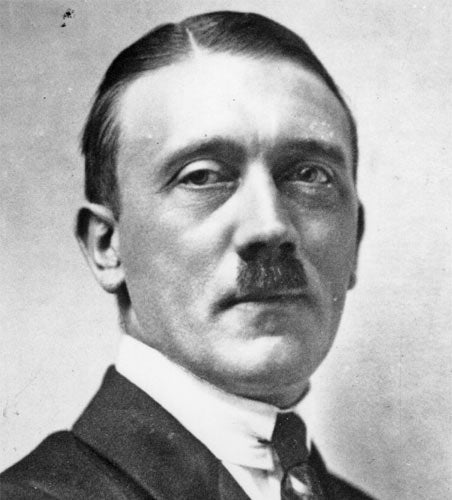Letters show Hitler's troops stayed alert during WWII by taking crystal meth tablets
Heinrich Böll, who went on to become one of Germany's most significant postwar writers wrote to his family in hope of topping up on the drug

Letters from a Nazi soldier, who became a Nobel Prize winning novelist, have provided an insight into the lives of German men on the front line - and possibly some clues as to how they kept on their toes.
Heinrich Böll, who went on to become one of Germany's most significant postwar writers, wrote to his family in the hope of topping up on a drug called Pervitin that according to its packaging helped "maintain wakefulness" and was to be used as an "alertness aid".
Details of the letters published in German newspaper Der Spiegel have validated theories that the Nazis were using the drug to keep soldiers alert.
During World War Two military doctors from Hamberg to München were handing out Pervitin pills which contained the highly-addictive Class A drug crystal meth, the report claims.
"Dear parents and siblings," Böll, wrote in a letter, dated November 9 1939, to his family in Cologne, while still a soldier in occupied Poland.
"It's tough out here, and I hope you'll understand if I'm only able to write to you once every two to four days soon. Today I'm writing you mainly to ask for some Pervitin...Love, Hein."
On May 20, 1940 , the 22-year-old soldier wrote home again: "Perhaps you could get me some more Pervitin so that I can have a backup supply?"
And again on July 19, 1940 , he wrote: "If at all possible, please send me some more Pervitin."
Between April and July of 1940, more than 35 million tablets of Pervitin and Isophan (a second brand name for the pills) were distributed to German troops.
The pills came with severe side effects including dizziness, depression, sweating and hallucination.
There were also soldiers that died of heart failure and others who shot themselves while having a psychotic phase.
For the most part, Nazi soldiers were finding that the pills were making them as alert as if they'd drank litres of coffee.
In January 1942, one letter from a medical officer says, that a group of hundreds of troops were surrounded by Russians and were attempting to escape in sub zero temperatures.
"I decided to give them Pervitin as they began to lie down in the snow wanting to die," wrote the officer.
"After half an hour the men began spontaneously reporting that they felt better.
"They began marching in orderly fashion again, their spirits improved, and they became more alert."
Join our commenting forum
Join thought-provoking conversations, follow other Independent readers and see their replies
Comments
Bookmark popover
Removed from bookmarks